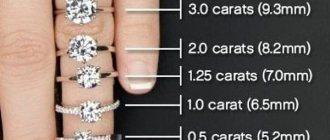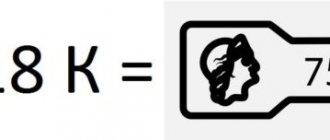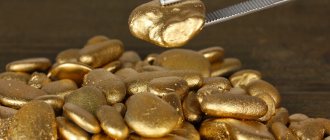Gold serves as an effective hedge against economic shocks. What do you know about gold, other than that it is a chemical element better known as “Aurum” (Au)? We have collected some interesting facts about this precious metal.
Gold ore has been discovered on all continents of the Earth, although it remains a rare metal. The rarity of gold is clearly demonstrated by the fact that every hour more steel is cast in the world's metallurgical plants than gold has been mined in the entire history of mankind, Rush Hour reports.
According to scientists, it was possible to extract only 20% of the formed reserves of our planet. That is, another 80% of the precious metal is hidden in the thickness of the Earth.
Story
The pathogenesis of “Aurum” first appeared in the 4th volume of “Pure Medicine” by the founder of homeopathy, Christian Friedrich Samuel Hahnemann. In the original, the title of the work sounds like “Reine Arzneimittellehre”, after translation into English it is often called “Materia Medica Pura” or simply “Materia Medica”.
The main idea of this and other works of Hahnemann is that any medicine has certain actions: that is, when treating, they give some kind of picture. And you need to select drugs for diseases whose symptoms, without treatment, have the same picture. Relatively speaking, you need to knock out a wedge with a wedge. He did a tremendous amount of work, developed an extensive theoretical base, which is still used today, and carried out many experiments. The effect of "Aurum metallicum" was also discovered experimentally.
Another scientist, James Compton Burnett, tested gold on himself. The great minds of the 19th century were of the opinion that the best way to understand how a particular medicine works is to test it on your own body. He describes his first sensations after taking Aurum exactly as Hahnemann predicted: being in a good mood, a feeling of pleasant excitement and cheerfulness. But after a few days there was no trace of euphoria left - instead, there was a loss of spirit and a very depressed state. The scientist slept poorly at night, he was haunted by nightmares, and during the day there was weakness throughout his whole body, but he did not want to sleep or rest at all. After a 12-day course of “anti-treatment,” Burnett began to fear for his health, and it was decided to abort the experiment. On the whole, the experiment was a success: the metal did its job, and a healthy person was able to fully feel the way sick people feel. The author wrote about this in his monograph “Gold as a Medicine for Diseases” (1879).
Excerpts from the book by I.V. Dolinina “Find out your type and get cured.” The word “gold” leaves no one indifferent. For some it is associated with wealth, for others – with the spiritual qualities of a person.
Gold is the first of the discovered noble metals. At first it was used exclusively as a measure of value or in jewelry. Later they began to use it in technology and industry.
The use of gold in medicine dates back to ancient times. Eastern rulers were treated with it. From the point of view of a homeopath, probably with success - after all, many rulers belong precisely to the “golden type”.
Alchemists recommended gold for the treatment of tuberculosis, epilepsy, scrofula, syphilis, cancer, uterine bleeding, leprosy, and lupus. Medicine of the 20th century used gold preparations for severe polyarthritis. A lot of information has been accumulated about the toxic effects of large doses on the body.
Hahnemann introduced gold into homeopathy. Thanks to long-term tests, its affinity for the cardiovascular system, eyes, ENT organs, liver, bones, and genitals was determined. Practice has shown that there is a type of people with certain external signs and properties of the nervous system who are especially sensitive to gold. Homeopathic Aurum metallicum can cure many ailments, improve adaptation, and possibly prolong life.
So who is he, the “golden man”, Aurum metallicum?
MAN AURUM
Aurum has a prominent figure. He is usually of medium height, stocky, with square shoulders, a short neck, and a bullish nape. More often, Aurum is described as brunette, but there are also “red-haired individuals.” His figure may undergo significant evolution during his life.
As a child, Aurum is usually thin and looks older than his age (like Lycopodium). The fact that aurum children are born into families of “elderly parents” (who are over thirty or even forty years old) may play a role.
Teenager Aurum is slender and long-legged. During puberty, facial features become larger and the shoulders and hips widen. Young men become big-boned, muscular and hairy throughout their bodies. A thick head of hair on the head indicates good health. Girls acquire full shoulders, curvy hips and developed mammary glands. These luscious young ladies seem to have stepped out of the paintings of Rubens.
After thirty years, Aurum steadily becomes fatter and somehow quickly fades. Tight forms droop into flabby folds. The blush turns into a persistent darkening of the skin. Men are rapidly going bald, making their scalps visible for all to see, and a thin purple network of blood vessels appearing on their noses. The aurum woman is very well described in the novel “The Twelve Chairs”: “The young woman was no longer young. Nature rewarded her with watermelon breasts and a powerful nape” (Ilf and Petrov about Madame Gritsatsueva).
Aurum values her appearance and supports it in every possible way. She exposes everything that can and cannot be exposed, uses flashy makeup and perfume. At the same time, he may neglect hygiene and be sloppy at home.
“And so good,” a sultry aurum widow might say to her reflection in the mirror. Sigh, tuck your watermelon chest into your washed shirt, and, without washing, go to bed. You may ask, how, in this case, is she different from Sulphur’s stately slob? Both are plump, red-cheeked with pyodermic skin. But they can be distinguished immediately: Sulfur does not tolerate heat, and Aurum does not tolerate cold. There are other differences, which are described in the chapter “Sulphur”.
The compensated Aurum has handwriting with large letters and strong, even pressure.
More details in the books of Dolinina I.V.
Most homeopathic manuals describe Aurum as an ambitious person, with a developed sense of duty, a desire to command and command others. He abuses his health, and over time, confidence, efficiency, and a sense of full-blooded life are replaced by despondency, despair, ideas of self-blame and thoughts of suicide.
In this state, Aurum’s character is an explosive mixture of black melancholy and outbursts of rage. The slightest objection can infuriate him, and Aurum throws his fists at the one with whom he just seemed to be calmly talking. The interlocutor was unaware that the outwardly restrained Aurum was simply silently experiencing his hatred of the world, but the last straw overflowed the cup of patience, and a dark seething wave poured over the edge, sweeping away everything in its path.
A compensated Aurum is an active, noisy person. May come across as an extrovert. As Dorzi writes: “For the sake of achieving success and wealth, he will walk over corpses, even his own.” He is authoritarian to the point of arrogance and prefers forceful methods of solving problems.
Aurum's full activity cannot be stopped. But sooner or later there will be an insurmountable obstacle for him. And then the ebullient activity abruptly gives way to oppressive melancholy and thirst for destruction. Aurum begins to blaspheme and wish that the whole world would fall into the underworld. And the fact that he himself, his family and his life’s work will die in this case gives Aurum a certain bitter pleasure. “Let the weak and wretched perish, we must also help them perish,” Nietzsche wrote. There were a lot of “aurum” motifs in Vysotsky’s late works:
A little slower, horses, a little slower. Don't listen to the whip! But somehow the horses I came across were picky - I won’t live long enough, I won’t have time, I won’t finish singing!
Aurum likes to walk along the boundaries of what is permitted, along the very edge of the razor. Probably, among the fabulous robbers from The Bremen Town Musicians there was at least one “golden” type. Let us remember the lines from the song of knife and ax workers, romantics from the high road: “We walk along the edge, we walk along the edge... our own.”
Aurum is characterized by protecting its own interests at any cost. Recognition of personal merit is very important to him. Aurum wants to be considered the most active, energetic, fair, and reliable.
He sets himself the task of being the best of the best. Constantly looks back at his opponents and compares their achievements with his own. His life passes like an endless sporting competition. When assessing potential competitors, it considers their ability to withstand pressure and their willingness to fight back. Sometimes he makes tentative attacks towards “Mr. X” and, if he does not receive an immediate response, he may form an erroneous opinion about his small power potential.
Aurum is a man of action. He loves a wide scope, the conquest of new territories and spheres of influence. Aurum can be fast, assertive, and proactive. He defends his good with his fists. In his youth, he simply punches the offender in the ear, then learns to restrain the initial impulse, but until the end of his life he retains the habit of clenching his fists.
An impulsive tendency to violence gives rise to a large percentage of aurum personalities in crime (and there are also many Mercurys and Nux vomics). Aurum joins the ranks of the criminal world not only because of his fighting qualities, but also because of his special attitude towards money. He combines a certain tight-fistedness with frenzied excitement. Aurum is a complete materialist who knows well the value of money. He wants to live better than the social group to which he belongs.
The prospect of instant riches can have a powerful effect on him. Aurum is a gambler: (horse racing, stock exchange, financial scams). If everything goes wrong, he can commit suicide by jumping out of the window. Of course, this doesn't always happen. More often there is some equivalent. For example, one aurum patient laughed and told me his dream. He runs up the stairs of a skyscraper, with enemies almost catching up behind him. Aurum is seized with icy horror - he is on the roof, and there is nowhere to go. “I feel with disastrous delight: I’m lost! I’m disappearing!” And suddenly an epiphany comes - after all, you can step over the edge, and you are free. He does so, but to his own surprise, he does not fall like a stone, but hovers freely and happily above the ground. This is how aurum conflicts are resolved at the subconscious level.
Aurum even whips up his horses rushing into the abyss, but until the last he believes that they will soar like the chariot of Helios. Or at least for a moment they will freeze on the edge: “I’ll water the horses. I'll finish the verse. I'll stand at least a little longer. On the edge!"
Alas, most often such an Aurum shares the fate of Icarus, falling like a stone onto sharp rocks.
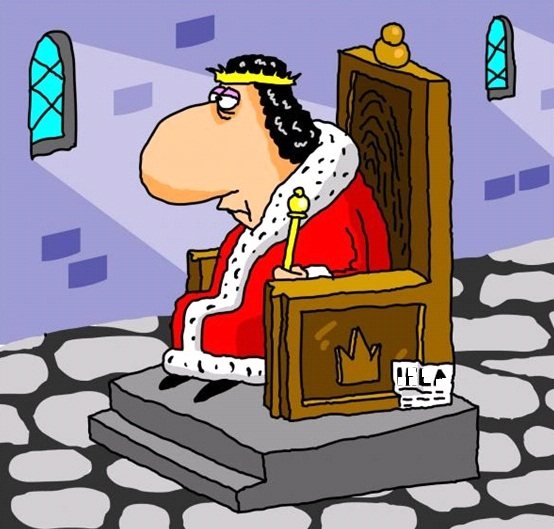
Being carried away by the work, Aurum does not take into account the efforts expended. He is able to make any sacrifice, developing exceptional performance. He likes to report on his achievements, as if inviting others to “look up to those looking ahead.” He cannot tolerate passivity, spinelessness, or avoidance of difficulties in people. It can impose a spirit of competition on those who are not yet completely hopeless.
Respects an active life position, directness and sincerity. He does not weave intrigues, considering it beneath his dignity. Prefers open rather than behind-the-scenes struggle. As Y. Vizbor wrote: “And if they beat you, then with your hand, and not at all with a statement.”
Aurum always strives to achieve his goal, but he is not particularly scrupulous in choosing means. This is a tactician who easily navigates the current situation, quickly changing the nature and point of action. But he doesn’t see the long term well. Thinking about her takes up too much energy.
Such a person is inclined to abuse the reserves of his vital energy, to the point of completely exhausting his physical capabilities. In this case, only a rare sense of reality can save him at the last minute.
Aurum constantly needs information about the capabilities of others. This happens because only in this way (by comparison) can he evaluate his own abilities.
While still at school, an aurum teenager, sitting on a test, looks around to see how other students are doing. He tries to hand in his work first to get the teacher's attention. And not at all for the purpose of fawning, but to create the image of a promising student.
Even before graduating from college, he is looking for a potential job and making business connections. In communication he always tries to give the impression of being reasonable and far-sighted. That is, he puts on a role mask - after all, neither one nor the other is naturally developed in him.
More details in the books of Dolinina I.V.
Aurum loves when plans are shared with him. In this case, he is able to give sincere, practical advice. I am ready to be a patient mentor to someone who will obey unquestioningly. Aurum is expansive and loves to command. Everything that happens according to his will is perceived by him as completely natural. Under the pressure of aurum authority, events seem to roll along the rails of golden necessity.
Such a person cannot stand uncertainty. When the unknown reaches its climax, he provokes a crisis in the situation in order to assess the balance of power and make it “for himself.” Aurum tries not to allow anything that would later turn against him.
For him, time is not a doctor, but rather a pathologist. Despite all the exceptional activity, Aurum is constantly in a state of time pressure. Calculating the number of things to do in time takes too much energy from him, so Aurum “let go of the reins.” He does what he wants now (or is absolutely necessary) and spends as much time as the task requires. Tries not to complicate the process and work quickly. And when ambiguities arise, he quickly switches to a parallel lesson.
Aurum may get carried away by the labor process itself and not notice its ultimate futility. Criticism on this issue is painful to bear. The best gift for such a person would be a magic mirror that would show the consequences of his current actions in the near and distant future. It’s just possible that Aurum would have thrown him on the floor: “Oh, you vile glass! You’re lying to spite me!”
A “golden” person doesn’t like it when life doesn’t go according to his scenario, because he offers the best one! And he wants immediate fulfillment of his plans (just as Argentum nitricum cannot tolerate the slightest wait). This differs from the methodical Arsen, who goes one step at a time towards his goal.
Aurum is a person of exceptional performance and endurance. If circumstances require, he can take on heavy physical labor associated with dangers and risks.
Often gives the impression of being a “jack of all trades.” Aurum has a craving for object-based activities - he wants to touch everything with his hands, feel the texture of the material, and master a craft.
When taking on a specific task, he is creatively activated. Especially if the way to do it is clear. Quickly masters new crafts. This allows you to find a source of additional income.
Aurum (unlike Arsen and Silicea) does not like to scrupulously check the results of his work. The need to work out details irritates him. Likes to act according to clear, proven methods. Constructive criticism is accepted only in the process of work, but not in relation to the final result!
Aurum is a realist. But sometimes there is such a paradox - he acts contrary to common sense, based on stereotypes. The stamp “this is how it is” can play a cruel joke on him.
It is difficult for Aurum to focus for a long time on a logical analysis of a complex phenomenon. He also has a hard time presenting the material consistently (this is clearly not Arsen!). Such a person may become infuriated by the demand to be logical. As a matter of fact, he already follows a certain logic of actions, but for now he is respected and admired. If such “feeding” stops, Aurum can “go wild.”
What professions does the “king of metals” choose? Always and everywhere he wants to be first. These are: manager, entrepreneur, authorized representative, consultant, lawyer, politician, public figure, diplomat, financier.
More “mundane” occupations: sculptor, athlete, military man, craftsman, tenant farmer.
Just as the metal gold lies deep in the bowels of the earth, so the “golden man” is earthly flesh and blood.
DISEASES OF AURUM
A decompensated Aurum comes to a homeopath. His need to get excited leads to the desire to achieve a goal at the cost of exhausting tension.
When Aurum encounters resistance, it gives rise to aggressiveness, which sometimes splashes out, but more often accumulates. The intensity of negative emotions affects primarily blood pressure, which becomes consistently high.
Sometimes Aurum arranges an “escape into stress,” thus escaping reality so as not to experience bitter disappointment. Such a patient, lying in the intensive care unit after suffering a myocardial infarction, may experience strange satisfaction. And even be glad that now life will begin with a clean slate. Alcoholism – treatment with homeopathy
Too much and too much stress can lead Aurum to a reluctance to contact people, an aversion to any activity, and disappointment.
He is gloomy, fed up with life, and feels his own worthlessness. Begins to engage in self-condemnation and self-humiliation. Illusions appear: “he neglected his responsibilities”, “he does everything wrong”, “he is the embodiment of evil”, “he is abandoned by everyone”, “he is haunted by evil fate” (“The man is a whistle! He is haunted by heavy fate!”)
Aurum has a heightened sense of responsibility and strives to be constantly busy. After all, it is work that helps him temporarily drown out the feeling of inner emptiness and isolation from others. But over time, self-doubt and fear of obstacles grow. Aurum becomes hypersensitive (fear of heights and transport arises), indecisive, extremely concerned about his future (fear of death and desire for death). Emotional instability appears when crying and screaming alternate with tense laughter, and periods of talkativeness with oppressive silence. Sensitivity increases, in this quality Aurum is much superior to Natrum muriaticum.
At the slightest contradiction, such a person becomes furious and can commit violence or attempt suicide. Religion serves as an outlet for him. Aurum constantly prays for the salvation of his soul and believes in the help of higher powers. Depression – treatment with homeopathy
The main problems of such a patient relate to the cardiovascular system (angina pectoris, hypertension, endocarditis, heart attack), joints (metabolic polyarthritis), ENT organs (nasal polyps, sinusitis, mastoiditis), genital organs (uterine tumors, prostate adenoma). Phobias (fears) - treatment with homeopathy
Treatment of an aurum patient with homeopathic Aurum metallicum helps stabilize the patient's condition. And in many cases, achieve remission or cure.
Sign up for treatment 8 (495) 150 – 60 – 95
AURUM IN HISTORY
(Friedrich Nietzsche)
Many aurum traits are found in the famous 19th century philosopher Friedrich Nietzsche.
Almost all of his ancestors were related to theology. The father was a Lutheran pastor, who was patronized by the King of Prussia, Frederick himself. The elder Nietzsche could have made a brilliant career, but poor health required a quieter life, and he asked for a village parish.
For several years there were no children in the Nietzsche family. And when the first-born son was born on the king’s birthday in October 1844, he was named Frederick in honor of the beloved monarch. Soon a second son and daughter were born. Little Friedrich did not begin to speak for a long time. The baby spoke his first words at two and a half years old, and at four, after the sudden death of his father, he lost speech for some time.
At the age of fourteen, Friedrich had a prophetic dream: “A grave opened to the funeral sounds of an organ, a father came out in a shroud, walked through the church and returned with a child in his arms. The grave opened again and swallowed them both. In the morning, Friedrich told his mother about his dream. And soon his younger brother Joseph suddenly fell ill. The child died a few days later. The terrible dream came true - the son was buried next to his father.
But time passed, and Nietzsche gradually came to terms with grief. They moved closer to relatives, Friedrich went to a new school. He grew up as a serious, balanced boy, very fond of church services and military parades. He was going to become a priest, like his father, and from a young age he was engaged in self-education. Sometimes, experiencing remorse, Frederick hid in a secluded place and only after thinking about his behavior, ran out of there. His friends called him the little pastor.
From the age of nine, Nietzsche studied music himself and very soon began to improvise well on the piano. He was overcome by a thirst for creativity - mazurkas, minuets and other melodies were composed daily. For the birthdays of mothers, grandmothers and aunts, poems were written and set to music. Young Frederick also composed several treatises consisting of rules and advice, and presented them to his classmates.
From the age of fifteen, Nietzsche's life changed. He was sent to study at a prestigious school at the monastery, founded in the twelfth century. One story has come down to us from Nietzsche’s school years. During class, the teacher talked about the exploits of the Roman hero, who put his hand into the fire to demonstrate to the doctors his disregard for pain. The students considered this story implausible. Then Frederick silently took the hot coal out of the oven and placed it on his palm. The scar from the burn remained with him for the rest of his life, especially since he himself etched the wound with molten wax.
Young Nietzsche kept a diary in which he described in detail every day he lived. At first, the boy had a hard time with strict school discipline, but later he found its advantages in this. Friedrich studied geology, botany, astronomy, ancient languages, and mathematics. During the holidays he composed poetry and music. Favorite writers were Schiller and Byron, favorite composer - Beethoven (Psychotype Mercury - L. Beethoven).
In the last year of study, the school regime became less strict, in addition, professors often invited the erudite Friedrich to their home for dinners, finding him an interesting conversationalist. At his final exams, Nietzsche almost failed in mathematics. But the teachers considered this unimportant and, taking into account the student’s humanitarian talents, gave him a diploma.
In the fall of 1862, Nietzsche decided to enter the University of Bonn. After a strict school, he was overwhelmed by a cheerful, wild life. Students united into corporations, each with its own concepts of honor and dignity. At first, Friedrich plunged headlong into a carefree pastime, but soon he became bored with tavern gatherings and picnics in nature. In his diary of those years, he reproaches himself for the hours of idleness and writes about his determination to lead a more severe and focused life.
Alas, Frederick did not limit himself to self-education, but decided to have a good influence on his riotous comrades. He took an unheard of step - he introduced a project for transforming corporations. Naturally, Nietzsche's good intentions ended in complete failure. His comrades pulled away from him, and Friedrich responded by branding them with a caustic word, which completely turned them against him.
Life prepared him a bitter test - the loneliness of the defeated. At first, the proud Nietzsche found it difficult to come to terms with this situation. But later he realized that from now on he would always be lonely, because his views were too different from those accepted in society: “I was tormented by thirst among people, and nothing quenched me. Then I went into solitude and created a superman.”
Young Nietzsche was too romantic in spirit and too aristocratic in upbringing to find his ideal in real life. He idolized Bach, Beethoven and Byron, but among the people around him he did not find even a remote resemblance.
Friedrich transferred from the University of Bonn to the University of Leipzig, where exactly a hundred years ago the great Goethe studied (Psychotype Karcinosin - J. Goethe). He liked the new student atmosphere, and Friedrich began to comprehend science and philosophy with zeal. In one of the bookstores, he accidentally discovered the work of a hitherto unknown author - Arthur Schopenhauer (Psychotype Lycopodium - A. Schopenhauer). Nietzsche was struck by the richness and depth of the philosopher’s ideas, his caustic sarcasm mixed with subtle lyricism. Schopenhauer completely captivated Friedrich, and his “The World as Will and Idea” became Nietzsche’s reference book. The thought that six years ago this philosopher was alive deeply worried Friedrich, and he lamented the fate that did not allow them to meet. Schopenhauer seemed to breathe new life into Nietzsche, giving him the support of existence.
At this time, Germany discovered its genius - Richard Wagner (Psychotype Aconite - R. Wagner). Poet, composer, publicist and philosopher; he was a revolutionary in Dresden and a court favorite in Munich; some admired him, others hated him. But Wagner's opera, in which the German people became the main character, shocked all of Germany. Nietzsche wrote that the sounds of Wagner's music made every nerve in him tremble. Imagine his happiness when the opportunity to meet the genius presented itself! Friedrich was completely fascinated by Wagner and admired his talent.
Meanwhile, Nietzsche was in for another pleasant surprise. He, a twenty-four-year-old university graduate, was offered a position as professor of philosophy in Basel! Frederick, without hesitation, agreed. On top of that, the divine Wagner lived not far from Basel, and Nietzsche hoped for the opportunity to communicate with the celebrity.
The composer was about sixty at the time. He had recently married the daughter of Franz Liszt, Cosima, was favored by the public and had no shortage of funds. In Nietzsche, Wagner found a devoted, enthusiastic student. At that time, Richard was writing a treatise on social metaphysics, which he discussed with Frederick. Nietzsche himself worked on The Origin of Tragedy during this period. Wagner was interested in the ideas of the young philosopher, and became increasingly attached to him.
In the fall, Nietzsche began a course of lectures at the university. His first performance caused a great stir. The second lecture was unusual, if not seditious. In it, a young professor debunked Socrates, considering his philosophy to be the reason for the decline of ancient art. This accusatory speech confused the listeners, but at the same time piqued their interest. Frederick was a good speaker, and therefore he was also assigned a course in higher rhetoric.
In 1870, hostilities began in Europe. Nietzsche, who had hitherto not been interested in politics, began to seek permission to enroll in the sanitary detachment. He traveled through the territories conquered by the Germans, saw how danger turns former burghers into brave men, and he himself felt a surge of patriotism.
For the first time in his life, he did not feel alone, but felt one with the masses. Until now, the philosopher knew only books, but now he learned about life at its sharp turns. Friedrich spent his days and nights caring for the wounded. Many of them died not from wounds, but from infections. Nietzsche himself was seriously ill with dysentery and diphtheria, after which he was discharged.
The war completely transformed Frederick's views: it freed human energy, disturbed sleeping minds, and gave birth to a sense of duty and love for the homeland. Nietzsche despised the philistine swamp, believing that only danger can stir up the sleep of reason. Therefore, in many of his philosophical works, he glorifies military actions, calling them heroic transformers: “To prevent the spirit of speculation from consuming the state itself, there is only one means - war. Love for the homeland evokes a moral uplift in people, which serves as a sign of a much higher destiny.” However, Nietzsche himself throughout his life could not recover from the consequences of his participation in the war. He began to suffer from insomnia, neuralgia, and stomach pain. On the advice of doctors, Friedrich went on vacation.
As for the scientific career of Nietzsche himself, Nietzsche’s work “The Origin of Tragedy” was rejected by all publishing houses as obviously not in demand. After many ordeals, the book was finally published. And what? - not a single magazine, not a single review has given her a critical note. Nietzsche was unprepared for such a reaction. Among his contemporaries there was no person capable of understanding his thoughts and feelings.
But the most difficult test was the obstruction of the philosopher’s lectures - often no more than three people were present at them. Of course, one could remember that at the lectures of Hegel (Psychotype Plumbum - G. Hegel), later recognized as great, there were also few listeners. But Nietzsche was not consoled by this - he was worried that he had no supporters.
Friedrich's health continued to deteriorate - his eyes could not stand bright light, and the headaches became so severe that Nietzsche was forced to stay in bed for weeks. At the slightest improvement in health, the philosopher returned to work. He developed his own philosophy of illness: “Sometimes you even rejoice in physical suffering, because thanks to it you forget about other internal mental pain.”
The description of the mature Nietzsche left to us by a contemporary is interesting: “Wide forehead, short hair, prominent cheekbones, thick overhanging mustache. His musical voice and slow speech spoke of his artistic nature, and his cautious and thoughtful gait revealed him as a philosopher. The mournful work of thought was constantly visible in his gaze; they were at once the eyes of a fanatic, an observer and a spirit seer.”
Nietzsche loved to travel. His health improved in a warm climate, so Frederick strove to Italy. He visited Venice, Genoa, and in Rome he met a young girl with the unusual name Lou Salome. She was Russian by origin, had a sharp mind, unusual beauty and an adventurous character. Lou Salome captivated Nietzsche from the first meeting.
The piquancy of the situation was that the philosopher’s student Paul Re was also in love with this girl. But, respecting each other’s feelings, the men did not dare to start an open fight for the heart of their beloved. Later, Pohl invited Friedrich to talk to Lou and make a confession on his behalf. Nietzsche agreed and left for Basel. Soon he received a response from Salome, which said that she had no intention of getting married at all and offered dear Friedrich friendship and moral support.
Nietzsche's sister Elisabeth played a certain role in this development of the situation. She believed that, having devoted her life to her brother, she had certain rights to him and did not want to share Friedrich with another woman. Lou Salome appeared to Elizabeth as an insidious schemer and a man-eater. Nietzsche met with Lou in Leipzig, where she arrived accompanied by Paul Re. Frederick's heart was filled with suspicions about their love affair. The denouement was accelerated by an angry letter from Sister Elizabeth addressed to Salome. Thus Nietzsche lost both his friend and his lover.
The philosopher hastily left Leipzig. Consolation awaited only in his beloved science, and within three months he created a completely unusual work - “Thus Spoke Zarathustra.” This prophet was for Nietzsche the forerunner of the superman. In his solitude, Zarathustra discovered the promise of happiness and brought it to people. The prophet promised a great reward for great work. “Believe in the holiness of your high hope,” he told everyone.
After Zarathustra, Nietzsche would also write “Beyond Good and Evil,” “Twilight of the Idols,” “Untimely Reflections,” and “The Will to Power.” These works found their readers and admirers.
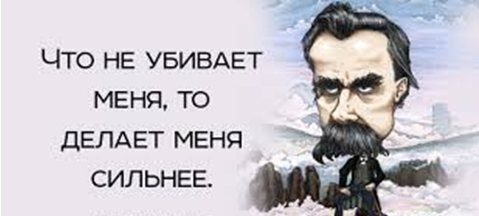
In his books, Nietzsche looks like an indestructible fighter; in real life, Frederick was greatly hampered by physical ill health and frequent depression. In 1879, he submitted his resignation from his professorship. “My condition is the threshold of hell and is no different from the condition of a tortured animal,” he wrote in those years. Since 1888, the philosopher began to show obvious signs of mental illness. Initially, there was a strong excitement, a desire to take revenge and expose former idols. He poured out his anger in furious pamphlets, including against his previously beloved Wagner. And in the works “Antichrist” and “Esse Nomo”, delusions of grandeur and an ineradicable desire for death are already clearly visible.
Frederick began writing strange messages to his friends, in which he called himself various historical characters and his recipients with fictitious names. In January 1889, he was hospitalized in a psychiatric clinic. The patient was delirious, mistook the gatekeeper for Chancellor Bismarck, grimaced and flatly refused to sleep on the bed. Sometimes the philosopher’s consciousness cleared up, and then he improvised on the piano. But the disease progressed steadily. In 1897, Friedrich's mother died. He survived her by three years and died in Weimar in 1900.
Nietzsche had many aurum health problems: severe headaches, progressive deterioration of vision, and, at the end of his life, a state of mental confusion. At the same time, such aurum traits as a sense of duty, responsibility, religiosity, hidden passion, and tenacity of character helped him endure the blows of fate and create unique works. More details in the books of Dolinina I.V. “Character and health”, “Find out your type and get cured”, “Greats and homeopathy”.
The connection between spirit and body
When reading the works of scientists of those years, you involuntarily notice that they never separated the spirit and the body - that is, any treatment of physical ailments was associated with what is commonly called the soul. S. Hahnemann wrote: “In a treatment that leads to the elimination of all tangible signs and symptoms of a disease, at the same time the internal changes in the life principle that caused the disease, and, consequently, the entire disease,” are eliminated. Therefore, along with a description of the action of the substance, one can also find a description of the type of person who is susceptible to such a disease.
This psychotype of people is conventionally called by the name of the substance that can help them: “Aurum metallicum”. Who should you look at to understand a little about such individuals? Introverted people who tend to have a strong or corpulent physique, perhaps a red face. They may not have any friends; they also deliberately limit communication with relatives. They don’t ask for help or admit that they need it, or rather they don’t realize it. Frequent depression is common for them, but it’s all on the inside, and on the outside they are friendly.
They are perfectionists in life and this is perhaps the very essence of their problem. Such people constantly strive to be on top (and, it must be said, very often they succeed), but the bar they themselves have raised haunts them day and night: they always have to live up to it. But this does not always work out, hence dissatisfaction with oneself, lack of confidence in one’s own abilities, and irritability. This results in a painful perception of criticism, rejection of any injustice, sharp mood swings, rage, aggression, thoughts of suicide and the meaninglessness of everything that happens around. Hahnemann's observations confirm this: “... imagines that he is not made for this world. Thirsts for death. Thoughts about death cause him intense joy. Incredible melancholy, leading to thoughts of self-destruction.”

Magical meaning
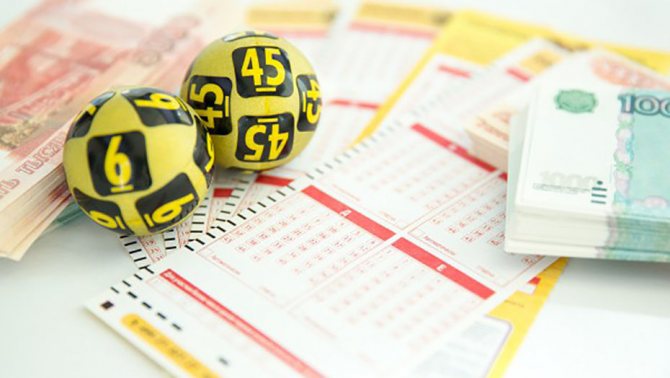
Initially, Aurum symbols were used by treasure hunters to quickly get rich, so modern treasure hunters can also take advantage of this feature of the magical amulet. However, the most common use of wealth symbols is to obtain quick benefits without any effort. If you speak Aurum correctly, you can win the lottery, find banknotes on the street, receive an unexpected and pleasant inheritance, beat your opponents at cards or hit the jackpot in a slot machine.
The talisman will give you incredible luck and help you quickly get out of the financial crisis. But in order to soberly assess your own strengths, practitioners recommend starting with small bets, because the jewelry may be insufficient or incorrectly charged. If at first Aurum works, and then suddenly stops giving results, then it is necessary to perform a ritual of filling with strength.
Ailments treated with gold
Barnett and Hahnemann proved through their experiments the miraculous qualities of gold, the only caveat: “In order for this metal to acquire its healing properties, it must first be rubbed.” Then it ceases to be an inert material, and only in the form of the smallest powder it begins to fight diseases.
In addition to emotional ailments, to which experts include hypertension, stroke, atherosclerosis - all these are consequences of short temper, anger, depression, vindictiveness - "Aurum metallucum" is able to cope with physical ones (but do not forget that homeopaths also associate them with emotions - all diseases are born at the level of spirit, they believe).
"Aurum metallicum" can be used for scrofulosis, bone caries, nasopharyngeal and eye diseases. In the treatment of nervous diseases, cerebrosclerosis with depression, anxiety, irritability, and memory loss. For diseases of the cardiovascular system, liver, and skeletal system. Some women's diseases are also treated with gold: chronic metritis, uterine fibroids, uterine prolapse, etc.
This drug is also used to treat sexually transmitted diseases. For example, Ricorda scrofulous syphilis is considered one of the most difficult diseases to treat - “Aurum” is used in this case.
Using the amulet
In order for Aurum to bring winnings and easy money, you need to use it, observing the following rules:
- The magical amulet should be worn next to the body, because the more often it touches the skin, the stronger the connection with the owner will become. It should be removed only when taking water procedures, since the strength will go away along with the flowing droplets.
- You can’t show Aurum to strangers, just like you can’t talk about the presence of a magical decoration. If someone notices and asks, it’s better to laugh it off and mentally apologize.
- If an outsider touches the surface of the square, it should be cleaned by placing it in a plate filled with salt. The procedure takes a day, and then Aurum is reactivated.
- To recharge, you need to periodically place the magic square under the sun's rays. Another effective way to replenish energy is to fill it with the forces of the elements. Flame is best suited, but periodically you need to perform a ritual of the 4 elements.
- If Aurum needs to be removed, then it should be placed in a separate box or bag made of natural materials.
Indications for use
In his Practical Medical Dictionary, Dr. John Henry Clark provides a broader list of diseases and conditions that can be treated with Aurum (including those already listed above).
- Amenorrhea. Asthma;
- Beli. Warts. Bubo;
- Hair loss. Tooth loss. Rectal prolapse;
- Hemianopsia. Haemorrhoids. Herpes. Hydrocele. Dizziness. Gonorrhea. Hernia, inguinal or umbilical, in children;
- Depression;
- Jaundice;
- Constipation. Bad breath. Scrofula. Toothache;
- Hysteria. Wasting in boys;
- Coxalgia. Colic. Bleeding;
- Fever;
- Melanosis. Melancholy;
- Visual impairment. Smell disorders. Underdevelopment of the testicles. Nasopharyngeal catarrh. Nightmares;
- Obesity. Dyspnea. Ozena. Masturbation. Tumors. Memory loss. Osteomyelitis of the soft palate. Osteomyelitis of the nasal bones. Osteomyelitis of the mastoid process. Mercury poisoning. Belching;
- Paralysis. Plethora. Diarrhea. Eye damage. Bone damage. Testicular damage. Consequences of drinking alcohol. Uterine prolapse;
- Nose cancer. Erysipelas;
- Angina pectoris. Tabes dorsalis. Syphilis;
- Tuberculosis;
- Suffocation. Seals in the tongue. Consolidation of the uterus;
- Chancre;
- Exostoses. Ecstasystoles.
We remind you once again that you should not self-medicate and “prescribe” medications to yourself simply by reading about them on the Internet. Consult with specialists.
The effect of the drug on the human body
Large doses of Aurum metallicum affect the circulatory system, glands and bone structures. At the same time, processes similar to mercury poisoning begin to occur in the human body, and the symptoms of syphilis begin to appear.
The drug causes an active rush of blood, which in turn leads to hypertrophy of the affected organs. The pressure rises, the veins dilate, the arteries pulsate intensely, cardiac hypertrophy develops - a strong heartbeat is felt. There is also a feeling of pain and heaviness in the chest during physical activity. Due to renal hyperemia, the daily amount of urine increases, which leads to fatty tissue degeneration.
How to make it yourself?
Any talismans made for a waning month are weaker than those made for a growing month.

It is better to make an amulet on Sunday, since this day is patronized by the daylight. If you have time, astrologers advise using the lunar calendar to predict a day off when the Sun will be in a good position relative to Mercury and Mars. When filling out each cell of the magic square, it is important to imagine the appearance of the desired money.
The more specific the amount, the better, but it should be borne in mind that a novice practitioner is unlikely to have the strength to instantly win very large sums. The optimal solution is to go in ascending order, presenting 600 rubles in the first cell, 1000 in the next, etc. The action will be enhanced if specific ways to receive money are presented. For example, winning at cards from specific people with whom you are planning a game in the coming days. The more details, the better.

